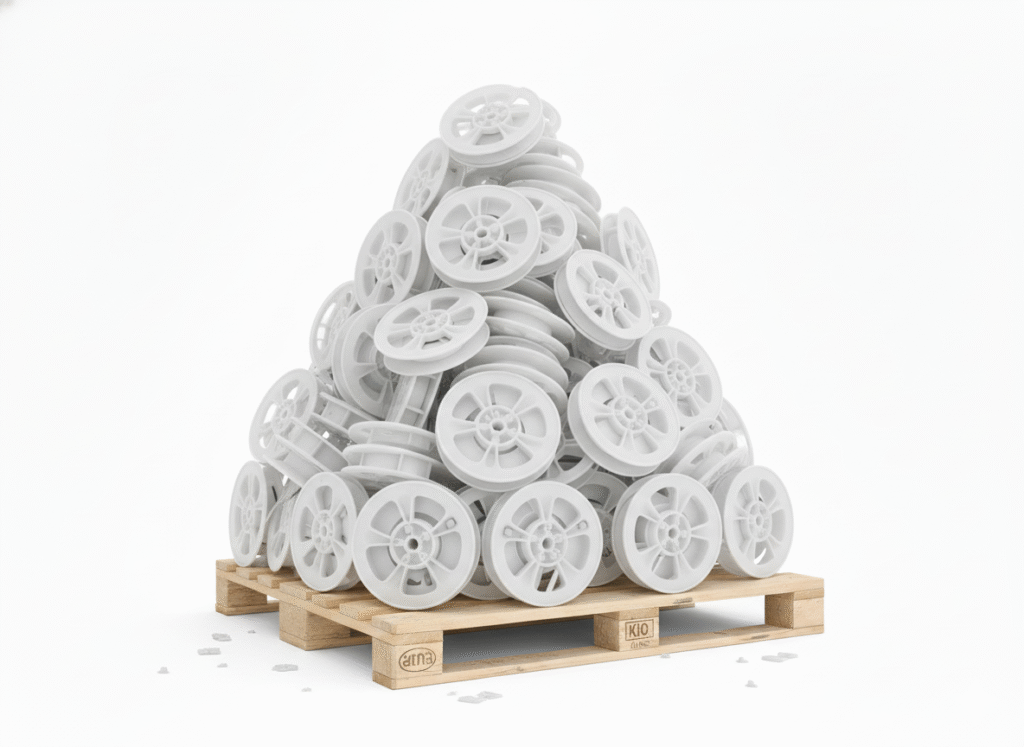Passionate – Dedicated – Professional
Plastic Recycling in Singapore
Singapore’s Plastic Recycling Trends
According to the National Environment Agency (NEA), plastic recycling rates in Singapore have remained persistently low compared to other recyclable waste streams.
In 2024, Singapore generated 918 thousand tonnes of plastic waste, but only 5% (43 thousand tonnes) was recycled. The global production and consumption of plastics have been rising rapidly, largely driven by single-use plastics such as disposable cups, utensils, straws, bags, and food packaging materials — all designed for convenience but discarded immediately after use.
Passionate – Dedicated – Professional
What is Plastic Recycling?
Plastic recycling is the process of converting used plastics into new materials, reducing the demand for virgin plastic production. By reprocessing discarded plastics, plastic recycling helps conserve resources, lower carbon emissions, and reduce the amount of waste sent for incineration.
However, many plastics that reach recycling bins are contaminated with food residues or made from mixed materials, making segregation and recycling more difficult. Contamination lowers recycling efficiency, reduces material quality and increases processing costs.
For example, a typical plastic drink bottle may include:
2. Label – PVC (Polyvinyl Chloride)
3. Cap – HDPE (High-Density Polyethylene)
While clean PET bottles are highly recyclable, separating PVC labels and HDPE caps is complex and costly. As a result, many mixed or contaminated plastics are sent for incineration instead of recycling.
It’s important to note that plastic identification codes (1–7) do not mean an item is recyclable — they simply classify plastics by material type to assist identification and sorting.

Passionate – Dedicated – Professional
Types of Industrial Plastics We Recycle
Note: Always remove contaminants from the recyclables, as these lower the value of recyclables.
Learn more about accepted materials and handling requirements in our Recycling & Waste Guides.
Passionate – Dedicated – Professional
Plastic Recycling Collection
Price Options
This pricing table applies only to recyclable materials such as industrial plastics, paper, and metal.
Different recyclable materials may be combined, provided they are properly sorted and separated. The options below provide a general pricing guide.
For general waste or bulky waste disposal, please refer to our Waste Collection & Disposal services for commercial and industrial clients.
Self Drop-Off
- No minimum weight required
- Self drop-off at our warehouse
- Receive cash rebates
Ad-Hoc Collection
- No minimum weight required
- Pickup from your location
- No cash rebates
Regular Collection
- Minimum 500kg per material type
- Pickup from your location
- Receive cash rebates
1) Not Accepted for Collection (Strictly Prohibited)
– PVC (Polyvinyl Chloride)
These materials cannot be collected or accepted under any circumstances due to safety or regulatory reasons.
2) Not Accepted Materials (May incur disposal charges)
– Consumer plastics (e.g. household packaging, PET bottles)
– Non-recyclable, contaminated or mixed plastics
These items cannot be processed for recycling and will be charged as waste disposal.
Additional Notes
– Ad-hoc collections in restricted or remote areas (e.g. Town, CBD, Sentosa, Jurong Island, Changi Air Freight Centre, Shipyards) — from $150/trip
– Plastic recycling and plastic product manufacturing are separate processes managed by different facilities. We do not manufacture plastic products or convert plastics into finished goods.
Passionate – Dedicated – Professional
Our Plastic Recycling Process
At Gee Hoe Seng Pte Ltd, we manage the first and most critical stages of Singapore’s plastic recycling chain — collection and sorting. We ensure that recyclable plastics are properly recovered, separated by type, and prepared for downstream recycling partners who handle washing, shredding, and reprocessing.
Together, this multi-step process turns discarded plastics into reusable materials that can be transformed into new products. The process of plastic recycling generally involves the following stages:
1. Plastic Collection
Plastic waste is collected from offices, factories, warehouses, and commercial buildings using our own fleet of vehicles. Our in-house team ensures timely and compliant collection for all clients.
2. Plastic Sorting
Collected plastics are sorted by type — such as PET bottles, HDPE containers, and PP packaging. Proper segregation improves recycling efficiency and material recovery.
3. Washing & Shredding
Recyclable plastics are thoroughly washed to remove contaminants and residues. They are then shredded into small flakes or pellets to prepare for reprocessing.
4. Melting & Reforming
Clean plastic flakes are melted and extruded into granules, which can be used as raw materials for manufacturing new plastic products.
5. Product Manufacturing
The recycled plastic granules are used to produce new materials such as packaging, bottles and containers, completing the recycling loop.
Need a compliant and responsible plastic recycling solution?
Our team will review your plastic types, volumes, and contamination risks to recommend a suitable, compliant, and operationally efficient plastic recycling solution for your business.
NEA-licensed industrial plastic recycling services with transparent sorting and reporting for businesses in Singapore.




